In order to maintain a secure account, it is important to keep your personal information up to date and follow university policies and best practices. These resources and tips outline simple steps you can take to protect yourself and your benefit accounts when online.
Keeping your benefits accounts safe
Don’t access your account on free Wi-Fi: only use secured Wi-Fi connections
Free Wi-Fi networks, such as unsecured public Wi-Fi available at airports or restaurants, pose security risks for your privacy. Always use a secure network connection when accessing your online accounts.
Use strong, unique passwords or passphrases, and never share them
We understand; keeping up with passwords can be a hassle. Even so, it’s important that you use complex passwords with a mix of uppercase and lowercase letters, numbers, and special characters. You can also use a trusted passphrase vault program to help create and track your passwords so you don’t have to remember your credentials for each account. And remember, never share your password or passphrase with anyone.
Use multi-factor authentication
Also known as two-factor authentication (2FA), this feature requires a second credential to verify your identity when logging in to your accounts (for example, using a push notification through Duo). Enable 2FA whenever possible as it significantly reduces the risk of unauthorized access, even if your password is compromised.
Set up online access and routinely monitor your online accounts
Create online accounts for your IU benefit plans and programs, and regularly log in to monitor them. You can also sign up for foreign login and activity alerts to receive notifications when there is activity on your account.
| Benefit provider | Website | App Store | Google Play Store |
|---|---|---|---|
| Cigna Dental | my.cigna.com | MyCigna App | MyCigna |
| CVS Caremark | caremark.com | Caremark App Store | Caremark Google Play |
| IU HSA/FSA | benefit-info.com/iu | IU HSA/FSA | IU HSA/FSA |
| Anthem | sydneyhealth.com | Sydney Health | Sydney Health |
| Fidelity Net Benefits | nb.fidelity.com | Fidelity Investments | Fidelity Investments |
| SupportLinc EAP | iu.mysupportportal.com | SupportLinc | SupportLinc |
| Care.com | care.com | Care.com: Hire Caregivers | Care.com: Hire Caregivers |
Keep your personal information current with IU and benefit vendors
Keeping your email, phone number, and address up to date ensures you can be reached immediately if there is a problem with your account.
Monitor your credit report to catch signs of identity theft early
Federal law allows you to receive a free copy of your credit report every 12 months from each of the three nationwide credit reporting agencies.
Beware of phishing attacks and scams
Phishing is an attempt by cybercriminals to solicit your personal information through legitimate-looking emails, phone numbers, web links, or attachments. Knowing how to avoid and report phishing scams is key to your account security.
Use antivirus software and keep your apps and software current
Antivirus protection is available for your mobile and desktop devices. When used properly, this software can protect your devices from viruses and malware. You can also safeguard your devices by updating the latest patches and upgrades and uninstalling programs you no longer use.

Can’t find the information you’re looking for?
Find answers to our top questions and learn how to get in touch if you can’t find what you need on our website.

